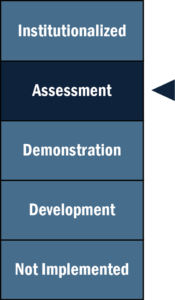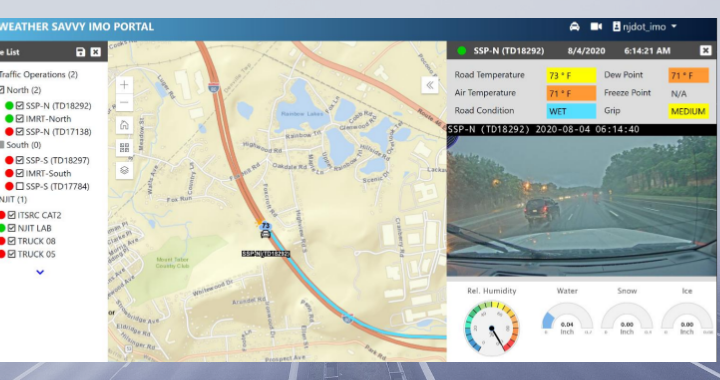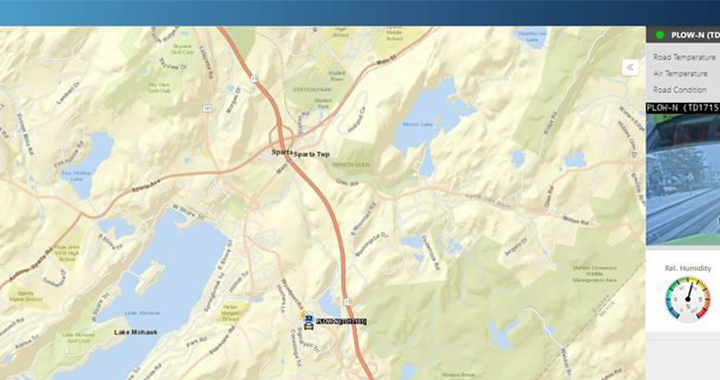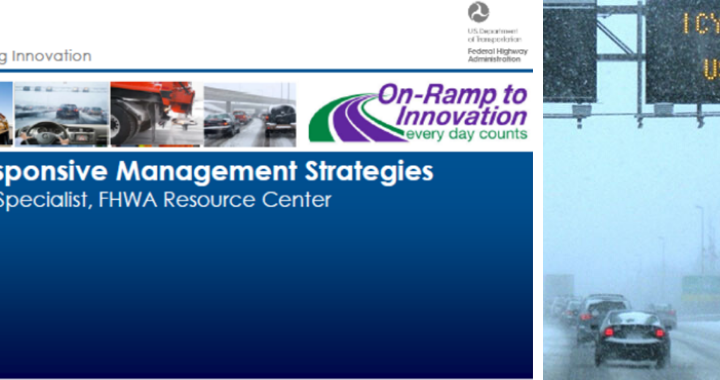What are Weather-Responsive Management Strategies (WRMS)?
More than 20 percent of crashes are weather-related, and weather-associated delays can result in significant losses in productivity and efficiency. Weather-responsive traffic and maintenance management strategies support State and local transportation agencies in deploying improved traffic control and traveler information systems that will significantly reduce highway crashes and delays resulting from adverse weather.

Weather-responsive traffic management strategies provide relevant and timely information to agencies on the need for appropriate traffic intervention methods to mitigate the impacts of weather-related road and traffic conditions. The result is improved mobility, reduced delays, and safer travel during inclement weather. Weather-responsive maintenance management strategies are also used by agencies to improve mobility and safety in adverse weather, as well as reduce the negative environmental impacts and costs associated with road salt use.
Learn more about this EDC-5 Innovation.
NJ Integrates Weather-Responsive Management Strategies

Stage of Innovation:
ASSESSMENT
(June 2022)
Prior to EDC-5, NJ had integrated several weather-responsive management strategies:
NJDOT Awarded Their First Accelerated Innovation Deployment (AID) Grant from FHWA. The award supported a weather savvy roads pilot program, installing video camera dashboards and sensors onto NJDOT maintenance trucks and safety service patrol vehicles to collect streaming video and weather / pavement information to support road weather management throughout the state. The project was authorized, with a contract awarded to New Jersey Institute of Technology (NJIT). NJDOT and NJIT staff worked together to coordinate details, including identifying and inspecting vehicles for possible placement of equipment.
Participated in FHWA's Road Weather Management Capability Maturity Framework program. The program assisted NJDOT staff to assess current capabilities with respect to road weather management.
Under EDC-5 and EDC-6, NJDOT implemented:
The Weather Savvy Road Pilot Project, a demonstration project funded through an Accelerated Innovation Deployment (AID) Grant, was initiated with a primary objective of deploying Integrated Mobile Observations (IMO) to better inform road weather management practices. As part of the project, 24 NJDOT fleet vehicles were equipped with windshield cameras, mobile RWIS sensors, portable PC computers, and cellular routers. The equipment in each vehicle was integrated to provide a continuous feed of road weather data and video of the roadway conditions to the remote data center using cellular communication. The data feed from all vehicles was integrated in a unified data management platform, which also provided a web-based graphical user interface for data and video feed visualization, among other activities.
What's Next?
The Weather Savvy Road Pilot Program Final Report details the pilot deployment activities and possible next steps for improvements to the deployed IMO technology based on the experience and lessons learned.
WEATHER RESPONSIVE STRATEGIES: NEW & NOTEWORTHY




